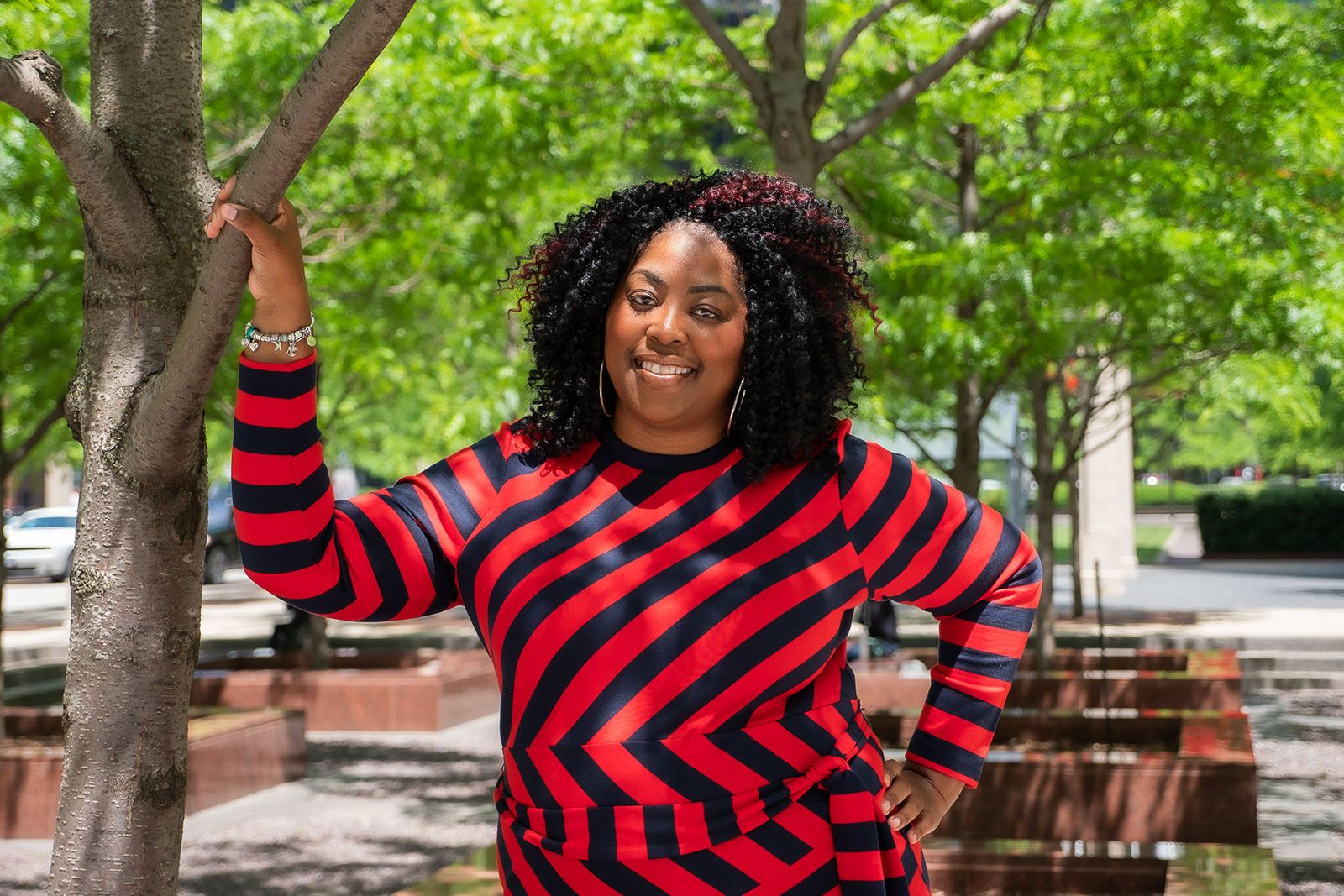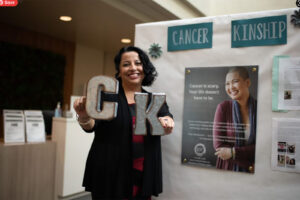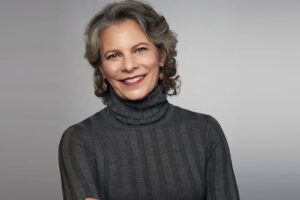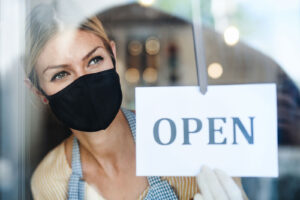By Kandis Draw, as told to Britt Julious
The day after Thanksgiving is when my mother started having these crazy pains. Now normally, I’d be like every other retail shopper and look for sales [because it was] Black Friday. I’d get up early, but for some reason I was home. My mother always had bad gas reflux for years, but this time she couldn’t move. She was doubled over. I took her to the emergency room.
They did a scan and said she has stage IV ovarian cancer that had spread to her liver. I just remember having to hold on to something. Like, “What did you say? We came to the emergency room, and now [she has] cancer. Who does that?”
It was overwhelming sadness. My mind was scrambling. I just remember having to sit down. I thought, Oh, my God. What next?
What did come next for me was a bunch of phone calls: my sister, my father. I didn’t tell my mom right away. My sister and I wanted to tell her ourselves, but she started figuring it out. [She was] a smart cookie. She felt a mass, and it was just shock and disbelief.
But then she did what she always does. “I’m sitting in this hospital, and I’m cold,” she said. “Can you go get me some pajamas?”
I just knew I had to [be a caregiver] because I was not comfortable with my mother going into a home. I did not know who was going to be caring for her. I had actually just been laid off, and I was at home, but it wasn’t just looking after her. It was [looking after] my two younger siblings who, at the time, were six and 12.
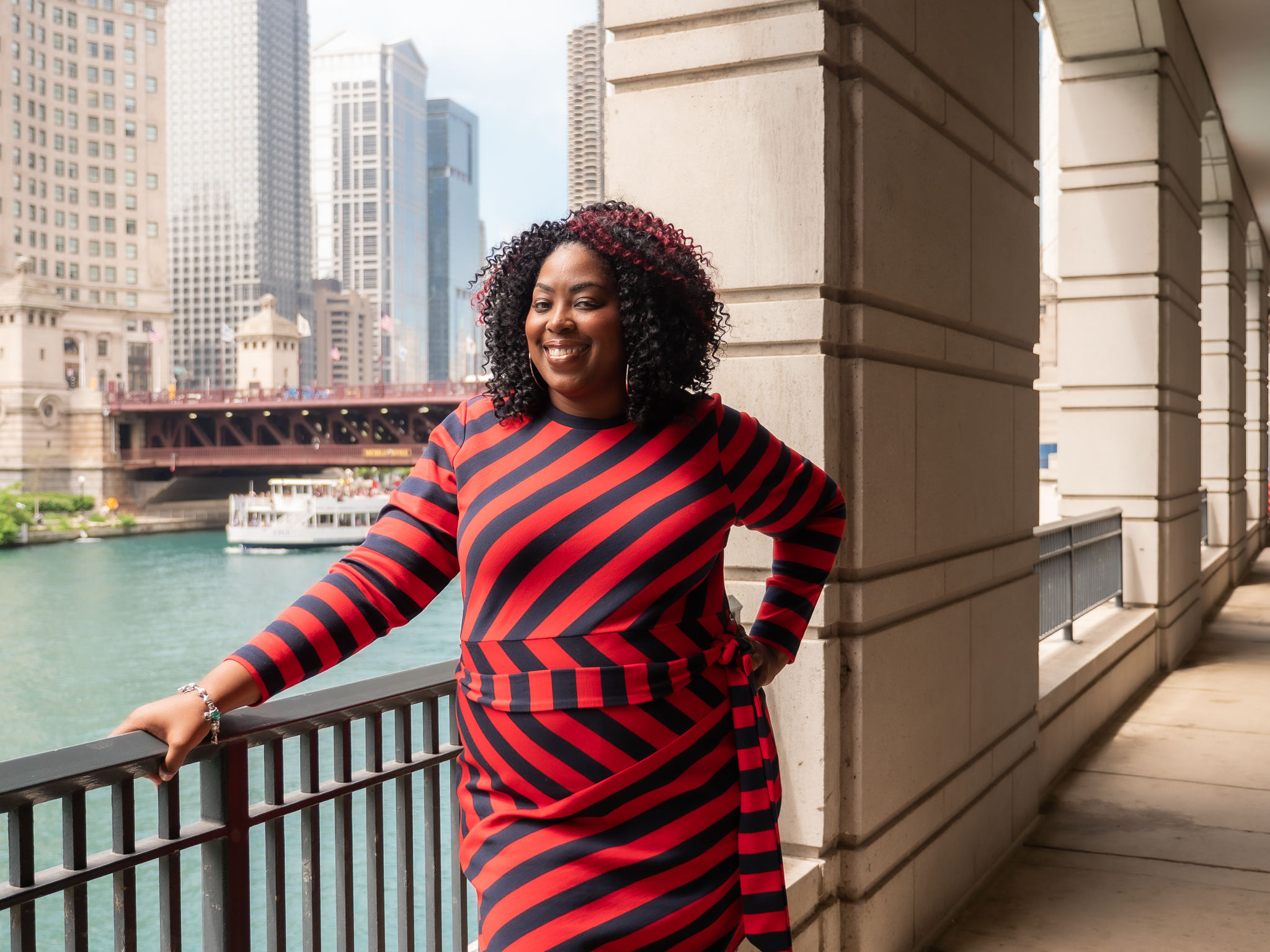
Life became very difficult for me. When I say difficult, [I mean] the grief. I couldn’t walk past her room. I couldn’t. I just closed the door. Healing for me was seeking help. It was going to therapy. I am a big advocate for therapy. First I used Moody Radio because they had late-night programs, and they would say, “If you need help, talk to somebody.” But because [I’m a part of] the black community—we’re not big into mental health, it’s rough for us to talk about that—I was lenient.
One day, I thought, I just need to call a therapist. The therapist called me back the next day [and was] very kind. They emailed me resources about what I was going through, and I ended up going to therapy. After my counselor went away, I went to Therapy for Black Girls. I still see a therapist. Not so much for the grief side anymore, but for my own life.
I started doing a little bit of traveling. I ended up going to Jamaica. I went to Cancún. I needed that so bad. And the thing is, you don’t realize it. When you’re so busy looking after everyone else, you don’t make time for yourself. I’m grateful for the opportunity to even do that. It was like, my siblings are OK. What does Kandis need to do for herself? Getting myself back. I was in my early 30s. It’s putting your life back together piece by piece.
You need to be OK with taking time for yourself. Be OK with asking for help. You think you’re superwoman, and you want to juggle a bunch of different roles, but ask for help. Take time to sleep. You have to eat. You have to bathe. You have to do the things that are important to you. Carve out some time. Solicit help from other family members. Get them involved. You give a lot of yourself—it’s important for you to recharge. Like they say, if you’re not pouring into you, you’re not pouring into anybody else. It’s OK. Not everyday will be great, but take that time to give yourself the opportunity to recharge.

Caregiving—it’s not for the weary. It’s almost like you have to step up. My father worked. Men of that generation, that’s just what they do. He worked and worked and worked. He’d be home in the evenings sometimes, but I’d say the majority was me. The rest of my siblings were away, so it was really me.
Caregiving—it’s not for the weary. It’s almost like you have to step up.
With my younger siblings, it was getting up every morning because she couldn’t drive. Taking them to school. Coming back. Seeing what my mother needed. Doing what I can. Getting back up. Picking them up from school. If they had activities, I still kept their lives as normal as I could. After that, did they eat? Doing that. Going back home. Repeat.
People, when they’ve got cancer, they cope in different ways. My mom would get up at 3:00 a.m. So guess who had to get up at 3:00 a.m., too if something was wrong? It was really difficult. One of my really good friends can tell you [that] I was talking crazy during that time. They would talk to me at night. I would call just to be livid. You don’t want them to die. You want to do everything you can, so you feel anxiety. You feel overwhelmed, exhausted, all of the above. I think with a caregiver, it’s important to have a support system. You find individuals who are going through things the way you are, and you kind of draw on each other.
I started journaling more, too. Growing up, my mother always taught me to journal. Whatever I couldn’t say, [I’d] write it down. Something overwhelming? Write it down. Just write it. Sometimes it would be big words like, OH, MY GOD. What’s happening? Or, What are we doing here? Then I would talk about how I have to be strong for my siblings who were very young at the time. I have to step in. I have to be that point person, and that’s hard. But journaling gave me an outlet. It was very cleansing. In three years, I went through four journals, and I save all of them.
My mom did natural treatment for two years. We did a lot of homeopathic things. She really wasn’t one for chemo, because chemo destroys the body. “I want to try a different route,” she said. [It was] not easy because her family members thought, OK, did you not hear what we said? That’s tough because [a loved one] may not choose the path you want them to, so you have to be OK with being supportive.
She was very stubborn and strong-headed. She turned vegan, so it was juicing. I can’t tell you how many trips I took to Whole Foods [or] Trader Joe’s [for] different recipes for her. You saw a difference. I’m a firm believer [that] eating healthy is vital for anybody. But if you’re fighting cancer, that’s crucial for you, too. It was hard for me; I’m not going to lie. But acceptance came when [I thought] she has to be OK with it.
A loved one may not choose the path you want them to, so you have to be OK with being supportive.
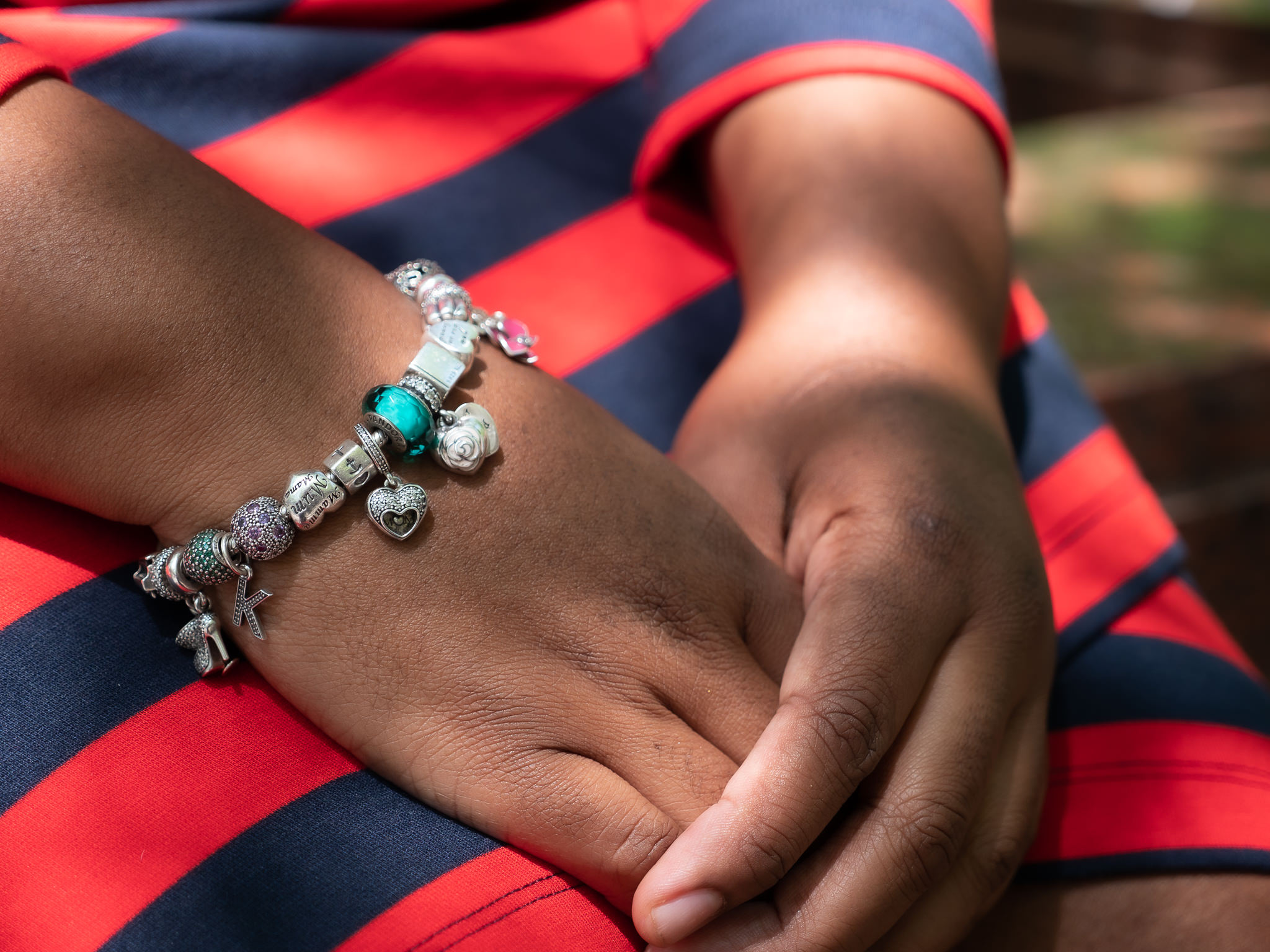
We visited several doctors, but during the last year, [she went to the] Cancer Treatment Centers of America.
After her first treatment, my mom said, “I’m sick of you wearing those shoes. What are you doing?”
I said, “Well, what do you want me to do?”
“Here, go buy some shoes,” she replied. The outlet mall was on the border. “Go shopping,” she said, and then threw her credit card.
There were funny moments every now and then, but there were terrible moments, too. Sometimes after treatment, she was in terrible pain. I remember I had to take her back to their ER. She was screaming in pain. Anxiety was through the roof for me.
We had good moments. We had bad moments. We had tragic moments. But that week [at the Cancer Treatment Centers of America] was bonding. We bonded for real.
If you’re not pouring into you, you’re not pouring into anybody else.
My mom ended up having a blood infection from the chemo which landed her in the ICU. And it wasn’t long after that that she died from complications from a stroke.
I remember standing in her room in the ICU, and I remember holding her hand and looking at her and talking to her and realizing I’d done the right thing. Taking care of a parent is hard. A caregiver role is rough, but you know you’ve done the best you could when it’s all over. It was one of the most difficult things I’ve ever done so far. When you sit there, you realize I did everything I could. I was grateful for the memories.
Life became very difficult for me. When I say difficult, [I mean] the grief. I couldn’t walk past her room. I couldn’t. I just closed the door. Healing for me was seeking help. It was going to therapy. I am a big advocate for therapy. First I used Moody Radio because they had late-night programs, and they would say, “If you need help, talk to somebody.” But because [I’m a part of] the black community—we’re not big into mental health, it’s rough for us to talk about that—I was lenient.
One day, I thought, I just need to call a therapist. The therapist called me back the next day [and was] very kind. They emailed me resources about what I was going through, and I ended up going to therapy. After my counselor went away, I went to Therapy for Black Girls. I still see a therapist. Not so much for the grief side anymore, but for my own life.
I started doing a little bit of traveling. I ended up going to Jamaica. I went to Cancún. I needed that so bad. And the thing is, you don’t realize it. When you’re so busy looking after everyone else, you don’t make time for yourself. I’m grateful for the opportunity to even do that. It was like, my siblings are OK. What does Kandis need to do for herself? Getting myself back. I was in my early 30s. It’s putting your life back together piece by piece.
You need to be OK with taking time for yourself. Be OK with asking for help. You think you’re superwoman, and you want to juggle a bunch of different roles, but ask for help. Take time to sleep. You have to eat. You have to bathe. You have to do the things that are important to you. Carve out some time. Solicit help from other family members. Get them involved. You give a lot of yourself—it’s important for you to recharge. Like they say, if you’re not pouring into you, you’re not pouring into anybody else. It’s OK. Not everyday will be great, but take that time to give yourself the opportunity to recharge.


